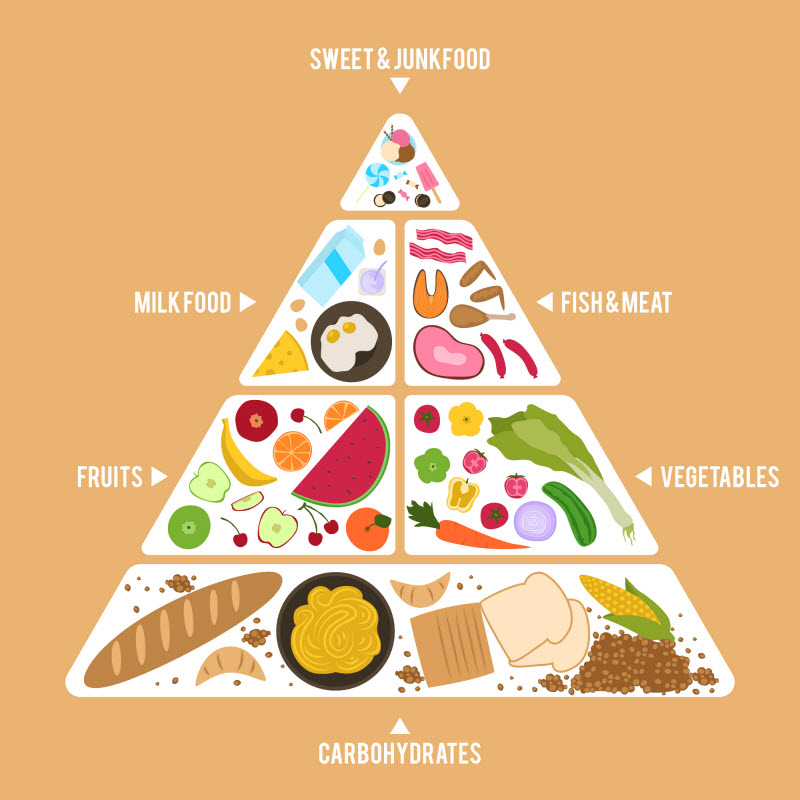
It is really important to know that no single food group can provide us with all the nutrients our body needs. So, in order to balance each meal, we need to choose varied foods from each food group.
The following guidelines are recommended for everyone looking for a healthier body:
- Eat at least 5 fruits and vegetables a day, but you must vary them and pay attention to the quantities. Fruits and vegetables contain carbohydrates, they are rich in vitamins, minerals, and fiber. You can eat them raw, cooked, fresh or frozen. Some fruits have a high Glycemic Index and should be consumed with moderation such as melons, grapes, and pineapple.
- Bread, Cereals, starches, and legumes provide carbohydrates, plant proteins, fibers and therefore energy. They should be consumed at each meal with diversification and according to your appetite.
- Dairy Products can be consumed at every meal. They provide you with animal proteins, fats, Calcium and Vitamin D. Moderation is important, and it is preferable to consume skimmed or semi-skimmed unsweetened products. It is recommended to eat cheese in small amounts as it is fatty.
- Meat, Fish and Eggs will provide you with proteins, fats, and iron. You can eat a portion of your choice 1 or 2 times a day, preferring the less fatty pieces. You need to eat fish twice a week including fatty fish which are high in Omega 3 fatty acids such as Salmon, Sardine, Tuna or Mackerel.
- Fat should be limited to 1 to 2 tablespoons per meal. Prefer vegetable fats rather than animal fats; these will provide you with essential fatty acids as well as vitamins A and E.
- Salt intake should be limited as part of an effective diabetes management. Although salt doesn’t affect blood sugar directly, consuming high amounts of sodium in your daily diet can lead to high blood pressure and may affect your overall health.
- Water is essential in its different forms: pure water, coffee, tea, broth and soup, and light drinks with little or no calories.
- Soft drinks contain high levels of sugar and their intake should be limited.
- Alcoholic drinks must be consumed in small quantities and never on an empty stomach. Beer and sweet wine are remarkably high in carbohydrates and may raise your blood sugar.
- Sweet products should be consumed occasionally and especially always as part of a meal.
How can you easily compose your Balanced Meal
In a balanced meal, you should have one element of each food group:
At least one raw fruit or vegetable
A side dish of cooked vegetables and/or starches
One serving of meat, fish, or eggs at least at one of the two meals of the day
One serving of starchy food and/or bread
One dairy product like yoghurt or cheese
One serving of good quality fat
Water
And for more balance, try to limit seasoning and cooking fats.
Make sure to check our “42 TASTY & LOW FAT RECIPES” in the downloads section which will give you an easy-to-follow plan for what and how much you need to consume on a daily basis.











Discussions
Add Comment